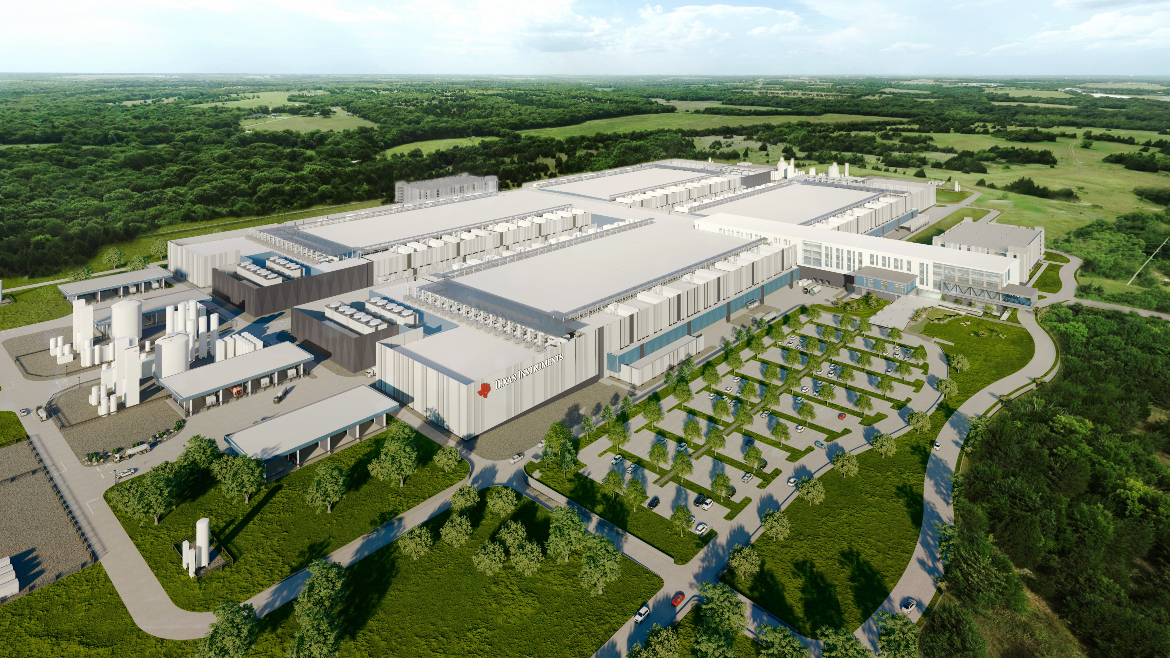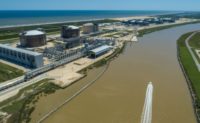Texas Instruments has plans to build as many as four semiconductor chip fabrication plants in Sherman, Texas, at a cost totaling nearly $30 billion. Work on the first plant broke ground last month.
The plans for the first plant, known as a “fab,” include construction of a 1.04-million-sq-ft manufacturing building, plus support buildings and ancillary facilities at a total expected cost of $6.5 billion in the city about an hour north of Dallas, Sherman city records show. Austin Commercial is the general contractor for the project, according to Dodge Global Network data. Neither Texas Instruments nor Austin Commercial immediately responded to calls for comment, though Austin Commercial hosted a virtual supplier fair for Texas Instruments’ Sherman manufacturing facilities in March.
Austin Commercial is a unit of Dallas-based Austin Industries, which ranks No. 32 on ENR’s 2022 Top 400 Contractors list. Austin Commercial has previously worked on at least one other Texas Instruments fab project in Richardson, Texas.
The fab is designed to meet LEED Gold requirements, Texas Instruments says. Page Southerland Page Inc. is the architect for the project, according to Dodge.
Texas Instruments plans to make 300-mm semiconductor wafers at the plant, using a process it says will reduce waste and consumption of water and energy compared to its 150-mm wafer production. The company expects the fab to begin production in 2025.
The company has options to build three additional fabs at the Sherman site to meet potentially-increasing demand over time, with the second phase estimated to cost $7 billion, the third $7.6 billion and the fourth $8.3 billion, records show.
City officials last year approved incentives for Texas Instruments to convince the company to choose the Sherman site. Those incentives include a 90% tax abatement for 10 years, provided the company meets capital investment thresholds and hiring commitments, plus a grant to cover 90% of property taxes paid for an additional 20 years.
The project comes amid a push to increase U.S. semiconductor chip manufacturing as shortages have impacted production of other goods. Federal lawmakers have been negotiating a bill that, as passed by the House earlier this year, would include $52 billion to boost private investment in semiconductor production over five years. Chipmakers are already working to meet the increased demand, with Intel planning a $20-billion, two-fab “mega-site” in Ohio, both Intel and Taiwan Semiconductor Manufacturing Corp. building new fabs in Arizona and Samsung planning a new fab in Texas.






Post a comment to this article
Report Abusive Comment